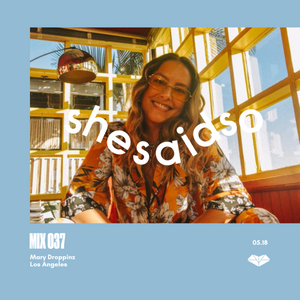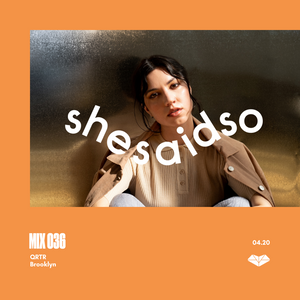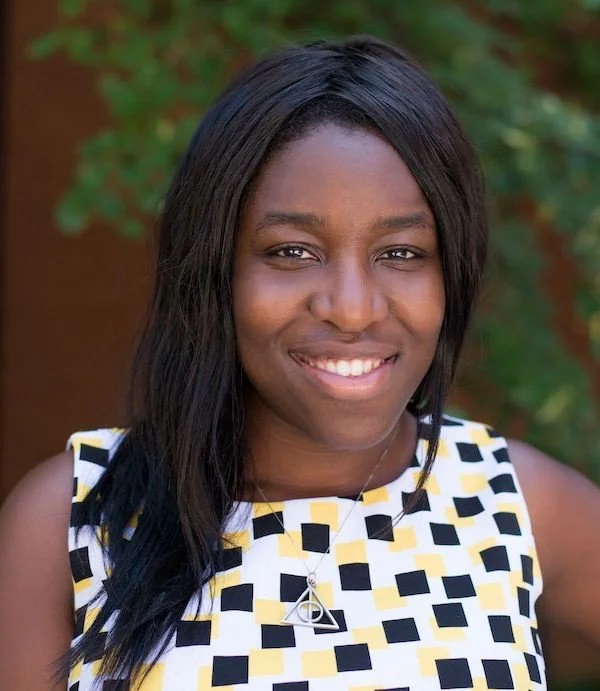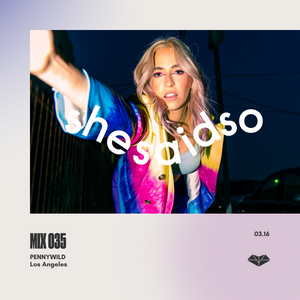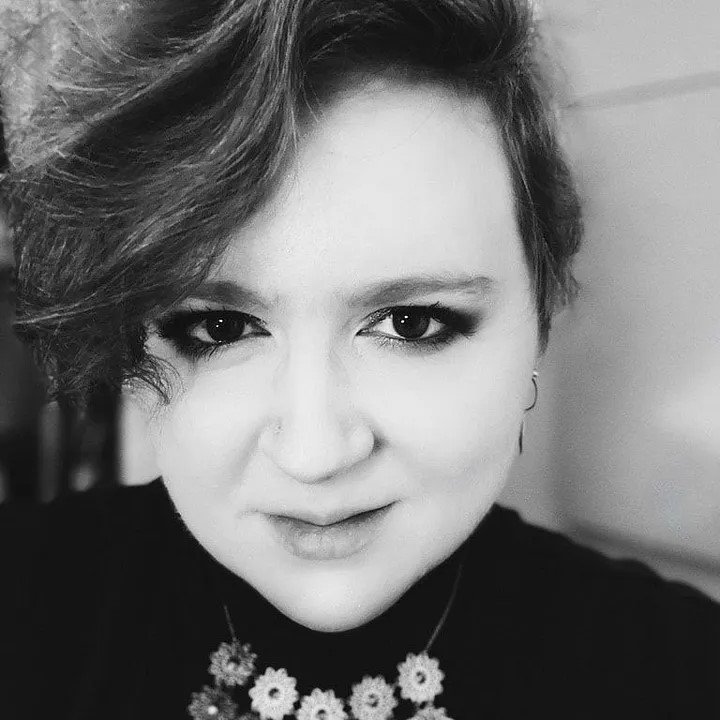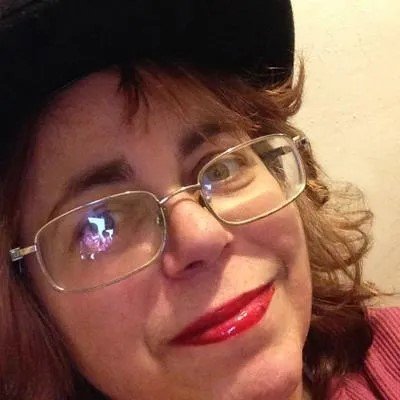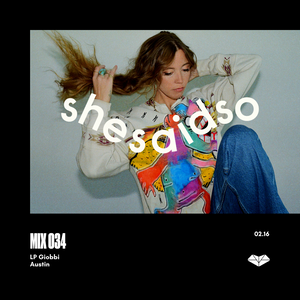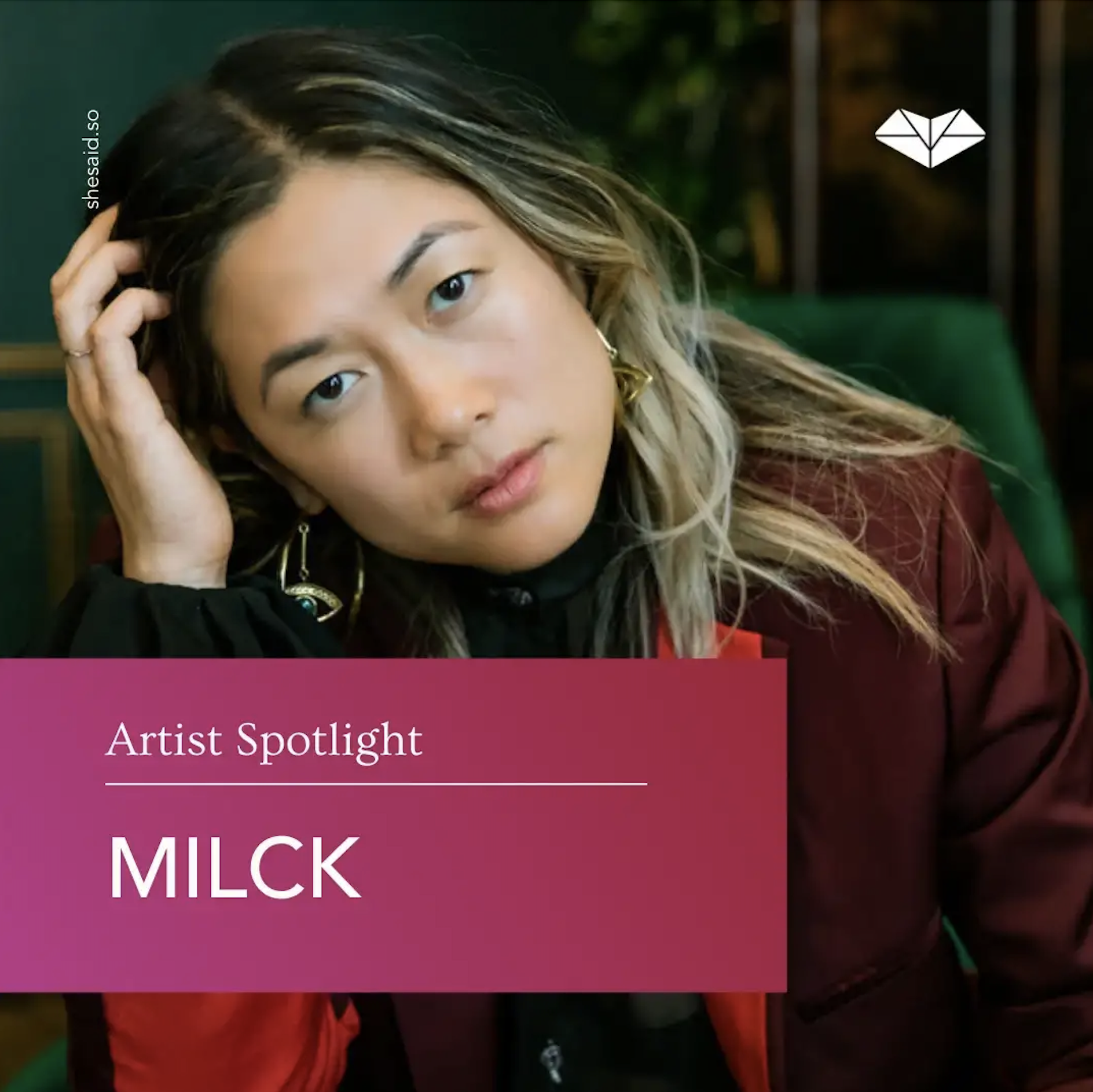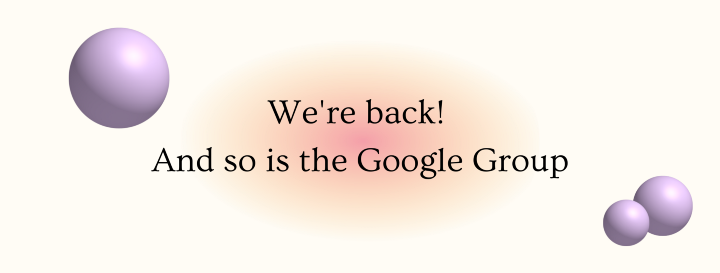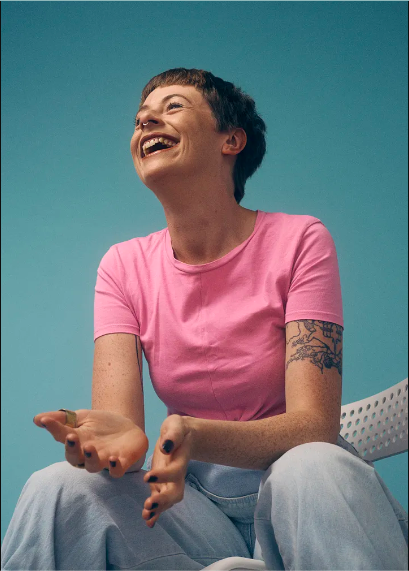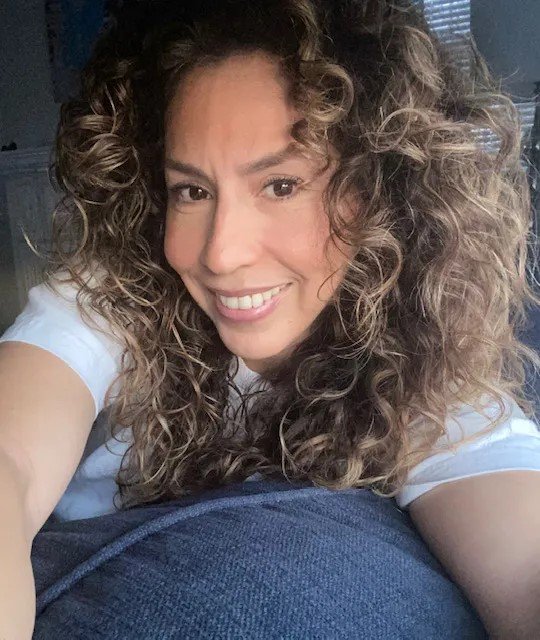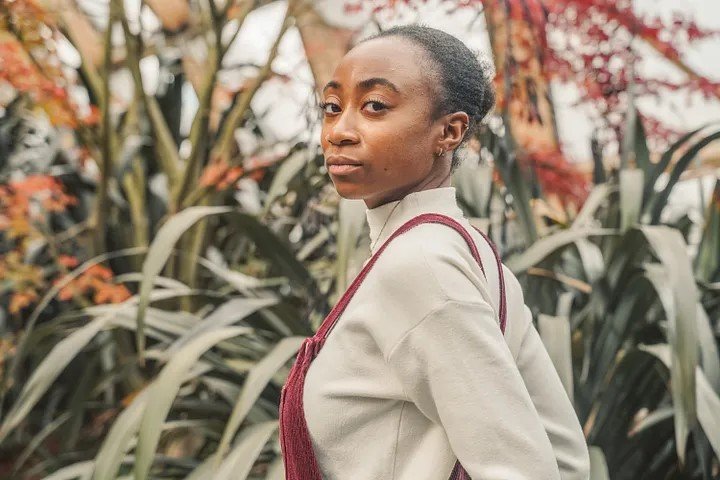shesaid.so: Tell us about your artist journeys and how these came together as HER?
Fofi: I have been heavily involved in the music industry for the past 25+ years as a DJ, radio producer, consultant and music journalist in various media outlets, specializing in electronic music. I started DJing professionally when I was 16, so I experienced the difficulties that a girl had first hand, trying to make it in a (local) man-dominated industry, needless to say female DJs were a scarcity at the time — it was so difficult to find a role model to be inspired by, look up to, reassure in some way that there was a future, a possibility for a career out there for me. I had to work extremely hard, rely only on myself, constantly prove that I deserve to be there, belong there over and over (and maybe still do today), until I finally got to a point of being able to exclusively live by my profession.
Greece is quite behind in matters of equality, so at some point I decided that I had to give back, I did not want other people and especially girls having to go through what I went through to get somewhere. So, I created HER project. It was a very lonely ride at first, but luckily I met Virginia at a HER party. I detected her drive, our common values and ethos, which led me to decide to invite her on board. With HER project and our trajectory in music as starting points, we were more than excited to launch the Athenian chapter of shesaid.so in April 2020, elevating our initiatives and efforts on a wider and larger scale, belonging to a like-minded larger and international community.
Virginia: I started DJing and producing quite recently, my journey began in 2018 though I did listen to electronic music before that. One night I met Fofi at a HER party, where we discussed about the concept of HER as a female empowerment initiative in music. I immediately resonated with it, because I had experienced gender biased inequality and sexism from one of my mentors. HER felt like a safe outlet to me, and the fact that I am able to utilize my art to offer a safer space to minorities and do something good for our society is the utmost purpose. From then on I joined HER and along with Fofi we are trying to involve more and more women into it, and raise awareness locally. Until now there isn’t a similar initiative as HER in Greece, neither in electronic music nor in other genres. This is why we also initiated shesaid.so Athens, to reach out to the music industry cluster in general, including other genres and professionals beyond artists only.
shesaid.so: How did you get involved with World Pride this year and what are you looking forward to?
We regularly collaborate with Athens Pride, both as representatives of gender minorities, but also as members of the LGBTQI+ community. We are always on the lookout for new, inclusive collaborations. World Pride House in Malmo had an open call for proposals, and we decided to sent in a triptych, which included a livestreamed HER DJ set along with drag performances, a live HER DJ set with VRGN, and a very interesting panel discussion on gender equality in the music industry. We were extremely happy that all of them passed. At the discussion, we are hosting 3 brilliant speakers, event planner and curator, Mirca Lotz, from Germany, psychologist and gender equality advisor, Maria Rodriguez, from Spain and Dina Liberg of shesaid.so Sweden, all of whom gave us their own valuable perspectives on current issues and future actions we could all take.
shesaid.so: Can you describe the dance and electronic music scenes in Greece? How is the current representation of women, gender minorities and the LGBTQ+ community in this industry?
The Greek scene is buzzing — Athens is becoming a very interesting and intriguing art hub, which has been characterized as the “new Berlin”. However, the music ecosystem, as a whole, is light years away from the Berlin scene. Starting from the lack of basic state support and funds, legislations, unions, statistics, lack of professions such as artist managers, music marketers and communicators, label management, agencies, and more. Needless to say, the music industry is still not as equal and inclusive as it should be with minorities. It was only recently that the issue was even a matter of discussion — shesaid.so Athens organized the FIRST panel that addressed the subject in September 2020.
Representation of women is still not enough and the arguments range from “there aren’t enough women musicians to begin with”, “there is no equality problem, women are the ones who do not want a career in music”, to “currently the top DJs are women, so there is no need for gender equality initiatives” and more.
Greece lacks basic education on what gender stereotypes are, on what ways gender inequality appears, what actions, comments and behaviors spark inequality. It is really funny, until it was not anymore, there are many times that as HER project we have felt that we have to actually convince people here that there is a problem with equality in music.
At the same time, Greece is experiencing a huge societal crisis with a constant and very alarming rise in femicides and gender violence, especially during the pandemic, while the patriarchal system is still strong in our society. Therefore, gender initiatives are needed more than ever, and that does not apply only to music.
On a positive note, more and more people speak up, more women and minorities express their own experiences and there is less fear in sharing one’s own story. In In that sense and in order to shed light on the matter of equality in music, in early 2021 we started a video series called #HERwords, where we invite women DJs and producers to answer a few questions in a 5’ video, sharing their own experiences and advice.
Last but not least, in 2021 the #MeToo movement also made its “debut” in the country — it created a sense of shock in the general public, but at the same time it gave a tremendous feeling of strength, support and hope not only to the victims, who boldly went public with their stories, but also to women and gender minorities in general.
shesaid.so: In your opinion, how could the industry do better in any way for DJ’s and artists?
What we have noticed from our collaborations with international artists and professionals, as well as members of the shesaid.so community, is that even though the needs are the same, each country and region has a very different perspective in terms of equality in the music industry, and consequently the respective actions each one takes lead to different sets of milestones we need to reach, so as to achieve working in a safer scene.
Everything begins and ends with education in our opinion. Firstly, we need research and statistics — numbers to show what is really happening in each area and profession, to understand each society and then to set up a localized approach and a clear strategy based on local needs and current social situations.
Raising awareness is also a great starting point, by simply advocating for gender equality and sharing experiences. Digital outlets, like social media, have much power that we can all exploit in that sense. Storytelling has become so much easier now, and if one’s story can affect and change just one more person, then it can create a snowball effect. E.g. Rebekah’s #ForTheMusic campaign sparked discussions and gained followers ranging from artists, to promoters, to clubbers and more. This demonstrated a suppressed need, which surfaced and engaged several professionals in the industry, even though it was a bit strange that it took so long for it to happen — since it was a subject we were all discussing constantly behind the scenes -, but thank the Universe it finally did.
Taking this as a starting point and using the Morillo extremely sad incident as an example, we have to really think why it took so long for mouths to open, even though it was made clear that people knew, why we saw so many people standing by him and not the victims, in the first place, but also after his death. This has to change. We need to start talking more and on a wide scale about safe dancefloors and booths, we need more men allies. We know the problem, we need viable solutions.
Finally, actively supporting communities is also an action we can all take in our daily lives. It is not enough to remain impartial anymore. In order to improve the music industry we need to radically change our daily habits, behaviors, collaborations — we need to actively include minorities in shows, we need to actively protect them and support them, until there is no need to do so anymore.
shesaid.so: It’s exciting to think about the possibility of live gigs safely again. What do you enjoy most about performing live and what has been your absolutely favourite set to play during your career/s?
Fofi: I am an introvert, but very skilled at socializing. Music has always been the means to express my feelings through sound, vibrations and words. I have been doing this since I can remember myself, so it was extremely difficult for me to accept that new “normality”. I hold the longest-living residency at a club in the country, being the resident of Sodade2 for the past 21 years, so I did not only lose my outlet for communication, but also my coexistence with my friends and chosen family. I cannot pick one set as my favourite, I am blessed to have had so many. My latest favourite ones are the b2b sets by me and Virginia at Sodade, when after 4 am we usually set the club on fire, but also our performance as HER project at the first Sonar Athens.
Virginia: What I love about performing live is this non-verbal vibe exchange with the crowd, a give and take, while they are trusting us and letting loose to our music. We have had some of our best nights at a local club where Fofi resides, called Sodade, where we play for hours and experiment with house, electro and techno tracks, mixing genres and classic tracks, too. Also, our set at Sonar Athens is one that I will never forget! The stage, the people, the music, the honor of being part of Sonar, it was truly a night I will never forget.





